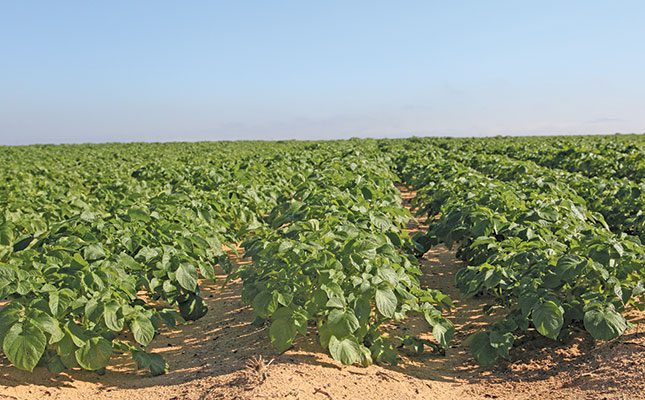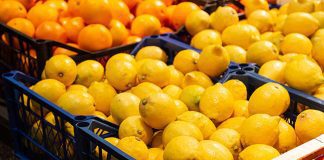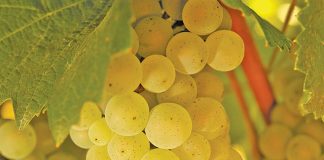
According to the Food and Agriculture Organization of the United Nations (FAO), women provide an estimated 50% to 80% of agricultural labour, depending on the region; they produce most of the subsistence food and often help to produce cash crops.
The FAO also argues that if women had access to the same level of resources as men, agricultural productivity would increase by up to 30%, agricultural output in developing countries would rise by up to 4% and the number of impoverished people would be reduced by up to 17%.
In an effort to challenge the norm and make the world of agriculture their own, women all over South Africa are rising up to own their roles in the farming world.
One such woman is Azowel Projects founder Welile Gumede from Madundube on the KwaZulu-Natal North Coast.
Thirty-three-year-old Gumede founded Azowel Projects as an unemployed single mother, who was wholly dependent on her daughter’s child support grant to survive.
She said she was desperate to find a way to bolster her income.
“I needed to think outside the box. There were these tunnels outside my home village. They weren’t used. I kept asking myself, what are these things for? I started doing research and learnt everything on YouTube,” she said.
Finally, Gumede decided to take the plunge, using her only form of income, the SASSA child support grant, and began Azowel Projects in 2018 with one tunnel.
Through unrelenting hard work and determination, Gumede’s initiative flourished with 40 hydroponics tunnels producing tomatoes, leafy greens and peppers that she supplied to resellers all along the North Coast.
She was able to provide employment to 32 people and made an annual turnover of R1,6 million.
However, Gumede was dealt a devastating blow when the April floods battered the North Coast and she had to helplessly watch her hard work being washed away, having to close down one of her farms as well.
While Gumede was in the process of rebuilding, she received assistance from the deputy minister of social development, Hendrietta Bogopane-Zulu, in partnership with the MTN SA Foundation, to the tune of R1 million.
Gumede said she has faced a tough journey, but she has not given up and while she has not reached the level she was at before the floods, she will get there.
Her efforts as a young black woman farmer have not gone without notice either. Gumede has received much acclaim for her resilience and she even won the University of KwaZulu-Natal’s Champions Programme, the SAB Kickstarter grant of R1 million and the Santam Women of the Future Rising Star 2020 to name a few.
“We are currently sitting with a situation whereby 75% of the food that we consume here in KwaZulu-Natal comes from the inland provinces, whilst 10% comes from the Eastern and the Western Cape. We can definitely do more to produce our own food,” she pointed out.
Offering advice to others, Gumede said it is necessary to make use of agricultural land to increase the production and profitability of agricultural activities.
She advised young people and women in urban areas to try urban agriculture through hydroponics.
She said starting something is mostly a matter of mindset.
“People often ask me how I did it. All you have to do is start. Find the land and just start; that’s what I did. Use whatever you have to build yourself up. This is what I did. I researched and learnt as much as I could and I used the things at my disposal like the Internet to learn and push myself. You have to try; it just takes one step.”
The Spinach Queen
Known as the “Spinach Queen”, Cape Town’s Ncumisa Mkabile is the owner and founder of Dawana Fresh Produce that specialises in crop and poultry farming.
Thirty-year-old Mkabile is an influencer for Standard Bank, a brand ambassador for Blue Ribbon as well as UNICEF and the winner of the Bar One Realise a Dream 2022 Competition.
Based in Khayelitsha township outside of Cape Town, Mkabile’s farming success story has been a beacon of hope to her community.
She sells her produce door-to-door for the convenience of her customers and she also offers training.
The Boston College travel and tourism graduate started farming in March 2020, when she was forced to close down her catering company as a result of the COVID-19 pandemic.
“The catering company was my only source of income so I needed to think of a plan to generate income again.”
She said at the time the country was on Lockdown Level 5, and people were afraid to go out, so she began selling fresh chicken offering door-to-door deliveries.
She then ventured into crop farming after she noticed a demand in her community.
“Doing my research before planting anything actually helped me a lot because I was able to understand what the community needed. I noticed that people travelled long distances to get produce.”
She then decided to plant spinach and cabbage so she could deliver the produce to the comfort of consumers’ homes.
“The support from the community has been amazing because when I harvest, everything is sold out on the same day.”
Soon the demand increased and due to limited farming space, Ncumisa had to move her farm to a bigger plot in Malmesbury.
She said her farming journey has taught her that is it okay to start small.
“It’s okay to start with what you have and gradually grow,” she said. “When I started farming, I did not have funding or an irrigation system; I was using watering cans. But because I have worked hard and pushed through, I now have bigger land and sprinklers.”
Speaking about her spinach harvests, she said she can reap up to 300 bunches from one field, which she supplies to supermarkets and restaurants.
Her advice to young women keen on becoming farmers is start small.
“I believe that as an entrepreneur you need to be able to take risks; you cannot be afraid to take risks. The risk that I took actually worked in my favour because now I have got a lot of opportunities to supply the formal and informal markets as well. When you live for a strong purpose, then hard work isn’t an option, but rather a necessity.”













